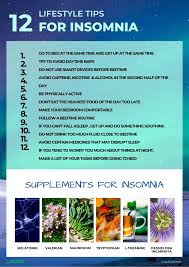Effective Ways to Cure Insomnia
Insomnia, the inability to fall asleep or stay asleep, can have a significant impact on your overall well-being. If you’re struggling with insomnia, it’s essential to explore various strategies that can help you improve your sleep quality. Here are some effective ways to cure insomnia:
Establish a Consistent Sleep Schedule
Go to bed and wake up at the same time every day, even on weekends. This helps regulate your body’s internal clock and can improve the quality of your sleep over time.
Create a Relaxing Bedtime Routine
Engage in calming activities before bedtime, such as reading a book, taking a warm bath, or practicing relaxation techniques like deep breathing or meditation. Avoid stimulating activities like watching TV or using electronic devices right before bed.
Maintain a Comfortable Sleep Environment
Make sure your bedroom is conducive to sleep by keeping it dark, quiet, and cool. Invest in a comfortable mattress and pillows that support restful sleep.
Limit Caffeine and Alcohol Intake
Avoid consuming caffeine and alcohol close to bedtime, as they can disrupt your sleep cycle and make it harder for you to fall asleep or stay asleep throughout the night.
Stay Active During the Day
Regular physical activity can help improve the quality of your sleep. Aim for at least 30 minutes of exercise most days of the week, but avoid vigorous exercise close to bedtime.
Manage Stress and Anxiety
Practice stress-reducing techniques such as yoga, mindfulness meditation, or progressive muscle relaxation to help calm your mind before bedtime. Consider talking to a therapist if stress or anxiety is interfering with your ability to sleep.
Consider Cognitive Behavioral Therapy for Insomnia (CBT-I)
CBT-I is a structured program that helps address the thoughts and behaviors that contribute to insomnia. It has been shown to be highly effective in treating chronic insomnia without the use of medication.
If you continue to experience persistent insomnia despite trying these strategies, consult with a healthcare professional to rule out any underlying medical conditions that may be contributing to your sleep difficulties.
By incorporating these tips into your daily routine and making healthy lifestyle choices, you can take steps towards curing insomnia and enjoying restful nights of rejuvenating sleep.
Top 6 Effective Strategies for Overcoming Insomnia
- Establishing a consistent sleep schedule can regulate your body’s internal clock and improve sleep quality.
- Creating a relaxing bedtime routine can help calm your mind and prepare you for restful sleep.
- Maintaining a comfortable sleep environment promotes better sleep hygiene and enhances overall restfulness.
- Limiting caffeine and alcohol intake before bedtime can prevent disruptions to your sleep cycle.
- Staying active during the day through regular exercise can contribute to improved sleep patterns at night.
- Managing stress and anxiety with relaxation techniques can aid in promoting a peaceful transition to sleep.
Challenges and Drawbacks of Common Insomnia Treatments
- Establishing a consistent sleep schedule can be challenging for individuals with irregular work hours or shift work.
- Creating a relaxing bedtime routine may require time and effort to find activities that effectively promote sleep.
- Maintaining a comfortable sleep environment might involve financial investment in high-quality bedding or soundproofing.
- Limiting caffeine and alcohol intake can be difficult for individuals with dependencies or habits that are hard to break.
- Staying active during the day may not always be feasible for people with physical limitations or health conditions.
- Managing stress and anxiety through relaxation techniques may not provide immediate relief for those dealing with chronic mental health issues.
- Cognitive Behavioral Therapy for Insomnia (CBT-I) requires commitment to a structured program, which some individuals may find challenging to adhere to.
Establishing a consistent sleep schedule can regulate your body’s internal clock and improve sleep quality.
Establishing a consistent sleep schedule is a powerful strategy to combat insomnia. By going to bed and waking up at the same time every day, you can help regulate your body’s internal clock, known as the circadian rhythm. This consistency signals to your body when it’s time to rest and when it’s time to wake up, ultimately improving the quality of your sleep. Over time, maintaining a regular sleep schedule can lead to more restful and rejuvenating nights of sleep, helping you feel more refreshed and energized during the day.
Creating a relaxing bedtime routine can help calm your mind and prepare you for restful sleep.
Creating a relaxing bedtime routine can have a profound impact on your ability to combat insomnia. By engaging in calming activities before bed, such as reading a book, taking a warm bath, or practicing relaxation techniques like deep breathing or meditation, you can effectively calm your mind and prepare yourself for restful sleep. This intentional wind-down period signals to your body that it’s time to relax and unwind, setting the stage for a peaceful night’s rest.
Maintaining a comfortable sleep environment promotes better sleep hygiene and enhances overall restfulness.
Maintaining a comfortable sleep environment is a crucial factor in promoting better sleep hygiene and enhancing overall restfulness. By creating a bedroom that is dark, quiet, and cool, you can signal to your body that it’s time to wind down and prepare for sleep. Investing in a comfortable mattress and pillows that support your body’s needs can also contribute to a more restful night’s sleep. When your sleep environment is conducive to relaxation and rest, you are more likely to experience improved sleep quality and wake up feeling refreshed and rejuvenated in the morning.
Limiting caffeine and alcohol intake before bedtime can prevent disruptions to your sleep cycle.
Limiting caffeine and alcohol intake before bedtime can significantly benefit your sleep quality by preventing disruptions to your sleep cycle. Caffeine, a stimulant found in coffee, tea, and some soft drinks, can interfere with your ability to fall asleep and stay asleep if consumed too close to bedtime. Similarly, alcohol may initially make you feel drowsy but can disrupt the natural stages of sleep, leading to fragmented and less restorative rest. By reducing or avoiding caffeine and alcohol intake in the hours leading up to bedtime, you can support a more consistent and undisturbed night’s sleep, promoting overall well-being and daytime alertness.
Staying active during the day through regular exercise can contribute to improved sleep patterns at night.
Engaging in regular exercise during the day can have a positive impact on your sleep quality at night. Physical activity helps regulate your body’s internal clock and can promote deeper and more restful sleep. By staying active, you not only improve your overall health and well-being but also establish a healthy sleep routine that can contribute to better sleep patterns. Incorporating exercise into your daily routine is a proactive way to combat insomnia and enhance the quality of your restorative sleep.
Managing stress and anxiety with relaxation techniques can aid in promoting a peaceful transition to sleep.
Managing stress and anxiety through relaxation techniques can be a powerful tool in promoting a peaceful transition to sleep. By practicing methods such as deep breathing, meditation, or progressive muscle relaxation before bedtime, individuals can calm their minds and bodies, creating a conducive environment for falling asleep easily and staying asleep throughout the night. These techniques help alleviate the racing thoughts and physical tension that often accompany stress and anxiety, allowing for a more restful and rejuvenating sleep experience.
Establishing a consistent sleep schedule can be challenging for individuals with irregular work hours or shift work.
Establishing a consistent sleep schedule can pose a significant challenge for individuals with irregular work hours or those who engage in shift work. The demands of non-traditional work schedules can disrupt the body’s natural circadian rhythm, making it difficult to maintain a regular bedtime and wake-up time. Shift workers often struggle to find a balance between their work responsibilities and the need for adequate rest, leading to inconsistent sleep patterns that can exacerbate insomnia symptoms. Despite these challenges, exploring alternative strategies such as creating a sleep-conducive environment and practicing relaxation techniques may help mitigate the impact of irregular work hours on sleep quality.
Creating a relaxing bedtime routine may require time and effort to find activities that effectively promote sleep.
Creating a relaxing bedtime routine to combat insomnia may present a challenge as it often requires time and effort to discover activities that truly promote restful sleep. What works for one person may not necessarily work for another, making it a process of trial and error to identify the most effective strategies. Experimenting with various relaxation techniques, such as reading, meditating, or taking a warm bath, can be time-consuming, but investing in finding the right combination of activities tailored to your needs can significantly improve your sleep quality in the long run.
Maintaining a comfortable sleep environment might involve financial investment in high-quality bedding or soundproofing.
Maintaining a comfortable sleep environment, while crucial for improving insomnia, may present a con in the form of financial investment. Creating an ideal sleeping space often requires purchasing high-quality bedding, such as a supportive mattress and comfortable pillows, which can be costly. Additionally, soundproofing the bedroom to minimize external noise disturbances may also require financial resources. While these investments can contribute significantly to better sleep quality, they may pose a barrier for individuals with budget constraints seeking to address their insomnia effectively.
Limiting caffeine and alcohol intake can be difficult for individuals with dependencies or habits that are hard to break.
Limiting caffeine and alcohol intake as a way to cure insomnia can present a significant challenge for individuals with dependencies or long-standing habits that are difficult to break. For those who rely on these substances to cope with stress, manage emotions, or simply as part of their daily routine, reducing or eliminating them can be a daunting task. Withdrawal symptoms and cravings may arise, making it hard to resist the temptation to consume caffeine or alcohol, especially when faced with sleepless nights. Seeking professional support and guidance may be necessary for individuals struggling to break these dependencies in order to improve their sleep quality and overall well-being.
Staying active during the day may not always be feasible for people with physical limitations or health conditions.
For individuals with physical limitations or health conditions, staying active during the day as a way to cure insomnia may not always be feasible. Conditions such as chronic pain, mobility issues, or certain medical treatments can make engaging in regular physical activity challenging or even impossible. In such cases, alternative strategies for improving sleep quality, such as relaxation techniques, mindfulness practices, and creating a soothing bedtime routine, may be more suitable and effective. It’s important to tailor insomnia management approaches to individual needs and abilities to ensure optimal well-being and restorative sleep.
Managing stress and anxiety through relaxation techniques may not provide immediate relief for those dealing with chronic mental health issues.
Managing stress and anxiety through relaxation techniques, while beneficial for many individuals struggling with insomnia, may not offer immediate relief for those grappling with chronic mental health issues. Conditions such as depression, post-traumatic stress disorder (PTSD), or generalized anxiety disorder often require a comprehensive treatment plan that may include therapy, medication, and other interventions tailored to the individual’s specific needs. While relaxation techniques can be a valuable component of managing mental health symptoms over time, individuals facing chronic mental health challenges may need additional support and professional guidance to address the root causes of their insomnia effectively.
Cognitive Behavioral Therapy for Insomnia (CBT-I) requires commitment to a structured program, which some individuals may find challenging to adhere to.
Cognitive Behavioral Therapy for Insomnia (CBT-I) offers an effective approach to treating sleep difficulties, but it does come with a con. One downside of CBT-I is that it demands a significant commitment to a structured program, which some individuals may find challenging to adhere to. The need for consistent participation in therapy sessions, implementing behavioral changes, and maintaining sleep diaries can be daunting for those with busy schedules or difficulty in establishing new routines. This level of dedication and discipline required for CBT-I may deter some individuals from fully engaging in the treatment process, potentially limiting its effectiveness for certain patients.




